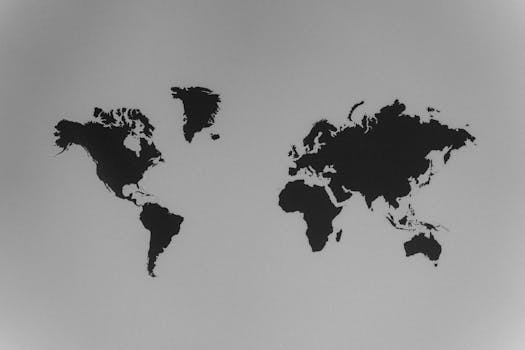Ethical Exploration: Navigating Complex Global Moral Landscapes
In today’s globalized world, ethical exploration has become more important than ever before. As we navigate complex moral landscapes, it’s crucial to not only understand our own personal values but also those of different cultures and societies. It’s no longer enough to simply follow a set of moral guidelines; we must actively engage in ethical exploration to make informed decisions and create a better future for ourselves and those around us.
The Importance of Ethical Exploration
Ethics, in its simplest form, refers to moral principles that guide our actions and decisions. These principles are shaped by our personal beliefs, experiences, and cultural influences. However, what may be considered ethical in one culture may not align with another, making ethical exploration imperative in today’s diverse and interconnected world.
But why is it important to explore and understand different ethical perspectives? Firstly, ethical exploration helps us become more aware of the impact our actions may have on others. In a world where our actions can have global consequences, being mindful of our ethical decisions can prevent harm and promote positive change.
Moreover, ethical exploration is key to creating a just and inclusive society. By understanding and respecting different ethical values and beliefs, we can work towards building diverse and inclusive communities that celebrate different perspectives. It also enables us to challenge our own biases and prejudices, leading to personal growth and a more open-minded approach to life.
The Complexities of Global Moral Landscapes
When it comes to ethical exploration, the global landscape presents a complex and ever-changing terrain. With advancements in technology and travel, our world is becoming more interconnected, allowing for the blending of cultures and traditions. This, in turn, has led to a fusion of ethical systems, making it even more challenging to navigate.
One of the challenges of exploring global moral landscapes is understanding the power dynamics at play. Western ethics have often been the dominant force, shaping moral principles for centuries. However, as we shift towards a more globalized world, it’s crucial to recognize and respect the ethical values of different cultures, rather than imposing our own beliefs onto others.
Additionally, the rapid pace of technological advancement has brought about ethical dilemmas that we never could have imagined. From artificial intelligence to genetic engineering, we must critically examine the ethical implications of these advancements and consider the potential consequences for both humans and the environment.
Practicing Ethical Exploration
Now that we understand the importance of ethical exploration and its complexities, how can we actively practice it in our daily lives? Firstly, it’s essential to acknowledge our own biases and prejudices and make a conscious effort to challenge them. We can also engage in meaningful conversations with people from different backgrounds and cultures, to gain a better understanding of their ethical perspectives.
Furthermore, education and self-reflection are crucial in ethical exploration. By continuously learning about different cultures, traditions, and ethical systems, we can broaden our perspectives and appreciate the diversity of the world. Self-reflection allows us to analyze our own ethical beliefs and values, and make necessary adjustments to align them with our actions and decisions.
In Conclusion
Ethical exploration is a vital tool in creating a harmonious and just world, where diversity and inclusivity are celebrated. As we continue to navigate through complex global moral landscapes, it’s crucial to engage in meaningful exploration and understand the impact of our actions on others. By doing so, we can build a better future for ourselves and future generations.











